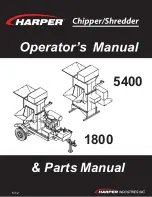
- 9 -
Operation & Maintenance Manual
Be careful during re-operation.
• When the safety device of the product is operat-
ing, remove the cause and operate again.
• If you repeat the operation arbitrarily, it can
cause a fire or a problem.
Use appropriate tools.
• Use tools appropriate for repair and accurate for
measurement.
• Using inappropriate tools can cause an accident.
Be careful of sound or noise.
• If you hear a weird sound or smell something
weird, immediately stop the operation and con-
tact the service center.
• It can cause a fire, an explosion or an injury.
Be careful of injury.
• Check the safety label of the safety device.
• Follow the above precaution and details on the
label. It can cause a fire or an injury.
• To prevent the generation of condensed water,
the pipe connected to the evaporator, as well as
the evaporator, must be insulated.
Check.
• Periodically check the product. When an issue is
identified, stop the operation and contact the
service center.
• Insufficient check can cause a fire, an explosion
or a problem.
Do not remove or change the cable connec-
tion when delivering the chiller.
• Operation of the compressor in the opposite
direction can cause a problem to the compressor
and must be replaced.
When shorting the part using jumper or other
tools, do not bypass by deviating from the
specified procedure.
• Grounding the control board and short circuiting
other cables can lead to electric module or part
damage.
• Insufficient check can cause a fire, an explosion
or a problem.
The flux must be within the designed range
and must be processed cleanly.
• This assures the product performance and
reduces the possibility of damage to the tube
including corrosion, sediment, scaling etc.
• LG is not responsible for any damage in chiller
and condenser from unprocessed or inappropri-
ately processed cooling water.
Consult with the expert on the appropriate
cooling water processing method.
• Chemical processing may be required to prevent
or remove sediments or corrosions etc.
Do not overcharge the system.
• Overcharging increases the compressor dis-
charge pressure and increases the consumption
of refrigerant. Also it can damage the compressor
and increase the power consumption.










































